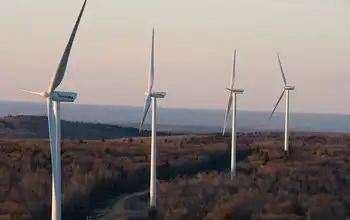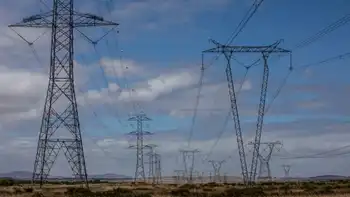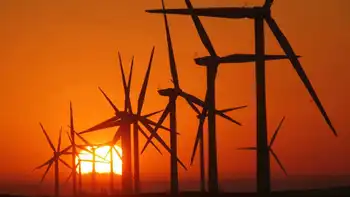China may emerge as world top wind power: Greenpeace
HONG KONG, CHINA - Greenpeace called for greater investment in wind turbines in China, the world's top coal consumer, saying Beijing's ambitious target for renewable energy means it could emerge the global top wind power by 2020.
"We need to stop financing problems and have to start financing the solution," campaigner Robin Oakley told reporters on board vessel Rainbow Warrior, operated by Greenpeace, as a blanket of smog covered Hong Kong.
"It (China) has enormous wind resources... The Chinese government is recognizing that," Oakley said, while announcing a study on wind potential in the southern Chinese province of Guangdong, known as the world's manufacturing center.
In February, China's parliament passed a renewable energy law, which will take effect next January, which sets tariffs in favor of non-fossil energy such as water, wind and solar power.
With Beijing aiming to build 20 gigawatts of wind power by the year 2020, Graham White, managing director of Garrad Hassan Pacific Pty Ltd. from Australia said China was likely to overtake Germany, Spain, the United States and India as the top wind user.
The official from Garrad Hassan, which conducted the study on behalf of Greenpeace, said the target compared with the world's total installed wind capacity of 55 gigawatts presently.
"Onshore wind will be the cheapest energy source of all the options for Europe in the year 2020... Same economics are going to be true for China," White added, referring to a 2003 study, commissioned by the U.K. government.
In Guangdong, the local government has set its own target to raise wind power to 3,000 megawatts by 2020 from 86 megawatts, he said, while its potential was estimated at 20,000 megawatts.
Wim Lansink, general manager of Shantou Dan Nan Wind Power Co. Ltd in Guangdong, calculated this would require investment of $15-$20 billion. Shantou Dan Nan is a joint venture between Dutch utility Nuon and the power authorities of Shantou city.
Asked if his 24-MW wind farm was profitable, Lansink said: "Yes, we are. Otherwise, we would have left."
Related News

Feds to study using electricity to 'reduce or eliminate' fossil fuels
OTTAWA - The federal government wants to spend up to $300,000 on a study aimed at understanding whether existing electrical technologies can “reduce or eliminate” fossil fuels used for virtually every purpose other than generating electricity.
The proposal has caused consternation within the Saskatchewan government, which has spent months attacking federal policies it believes will harm the Western Canadian energy sector without meaningfully addressing climate change.
Procurement documents indicate the “Electrification Potential Study for Canada” will provide “strategic guidance on the need to pursue both electric and non-electric energy research and development to enable deep decarbonisation scenarios.”
“It is critical that (Natural Resources…




